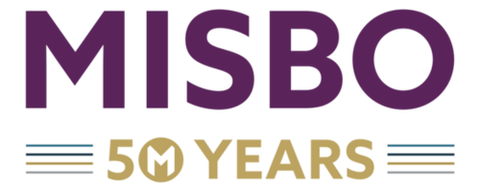Four Steps to Database Research for Elementary Students
Four Steps to Database Research for Elementary Students
The Lovett School Case Study
By Susan Gall, Founder, FactCite: Lincoln Library Online
We love hearing the creative ways librarians find to incite students’ curiosity. We caught up with subscriber Jennifer Northrup at the Lovett School in Atlanta. She shared her approach to database research with elementary students – culminating in a cool video game project.
The goal? Showing students the magical efficiency of databases developed JUST for them.
Step 1: Getting students to try databases.
Jennifer told us, “Students gravitate to Google — they hear that so much in their daily lives. My goal is to help them learn to navigate our databases.”
Jennifer shows students that “Googling” can be overwhelming. “I compare searches, showing that Google can provide a massive number of resources, whereas we can use databases to get more targeted information to support inquiry.”
For example, searching Google for “Thomas Edison” and returns a whopping 72 million results! The same search using Lovett School’s database subscriptions returns three results, at three different reading levels, allowing the student to choose the best for their particular need.
Step 2: Finding the right tool for the job.
Jennifer guides her students in selecting the right resource. “We have quite a few databases available for students. One strategy I use is to help students select the database that is most appropriate for them. Many of our databases filter content based on reading or Lexile level. By teaching students to do this, they are better able to read and comprehend the information they locate.”
Step 3: Is your research noteworthy?
Jennifer’s third-grade students investigate a mysterious place, such as Atlantis or Stonehenge, using Lovett’s subscription databases. Jennifer models notetaking by sharing her own notes with students. “This helps them see whether they recorded the important information needed to complete their project,” she said.
Step 4: Showtime!
It’s time for students to show what they’ve learned. What could be more fun than writing a report? Developing a video game! Lovett School third graders transform their research into a video game about their mystery using Bloxels. (Learn more at http://edu.bloxelsbuilder.com/). Jennifer observed, “The text included within the game allows them to showcase what they learned through their research.”
Mission accomplished!
With this fun project, students learn that databases help them get to the information they need, at JUST the right reading level. Databases can include audio read-along, and when a bibliography is part of the assignment, databases can provide support with citations.
 Susan Gall is one half of the business partnership that launched FactCite Lincoln Library Online in 2008. Before that, with her husband and business partner Tim, Susan produced award-winning, authoritative reference works. Tim and Susan are passionate about providing resources that enable EVERY student to succeed. FactCite was named “Best Overall Reference K-12” in the inaugural LMC/ARBA Best in Reference Awards presented at the annual ALA conference in Chicago. Students in thousands of schools access FactCite at school or from anywhere, on any device, to complete research for homework assignments and to browse online nonfiction resources.
Susan Gall is one half of the business partnership that launched FactCite Lincoln Library Online in 2008. Before that, with her husband and business partner Tim, Susan produced award-winning, authoritative reference works. Tim and Susan are passionate about providing resources that enable EVERY student to succeed. FactCite was named “Best Overall Reference K-12” in the inaugural LMC/ARBA Best in Reference Awards presented at the annual ALA conference in Chicago. Students in thousands of schools access FactCite at school or from anywhere, on any device, to complete research for homework assignments and to browse online nonfiction resources.
Early researchers find information that is just right for them with databases, including affordable FactCite! Contact us at owls@factcite.com and we’ll send you a fun scavenger hunt to get students started in the new school year with FactCite’s databases.
